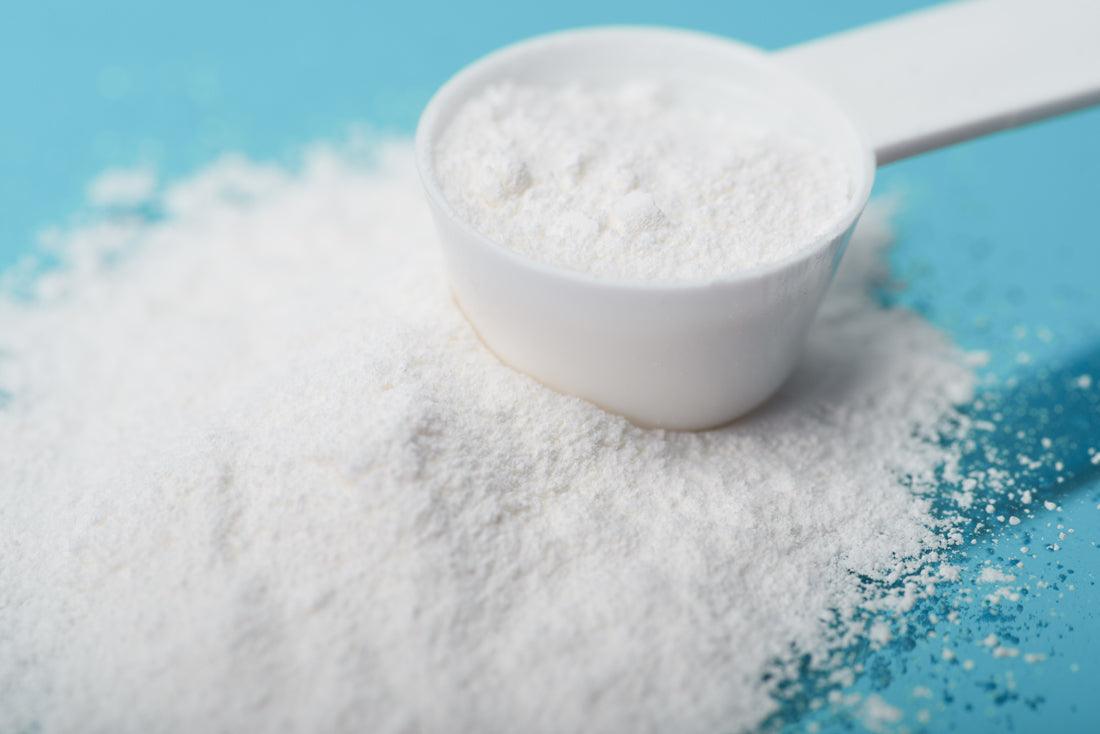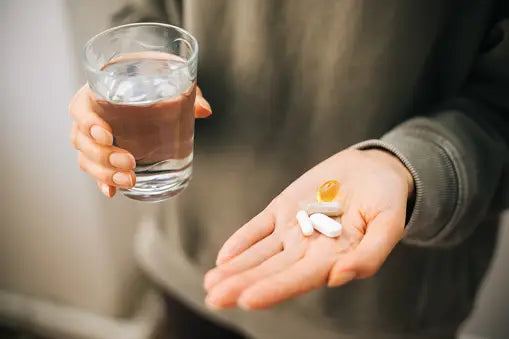

Why Creatine MagnaPower May Be The Best Creatine
Table of Contents
Creatine monohydrate has been around for many years and is a proven ingredient for muscle growth and strength. Some people may experience gastrointestinal distress when using creatine due to its poor bioavailability. There are many forms of creatine, which have been created to improve the bioavailability of creatine, but one of the more interesting is magnesium creatine chelate. Creatine MagnaPower®, or magnesium creatine chelate, is a patented version of creatine molecularly bonded to magnesium to promote the synthesis and regeneration of ATP. Creatine MagnaPower is patented from Albion Human Nutrition, the world leader in chelated mineral science.
Creating magnesium creatine chelate with a patented technology protects the creatine molecule from transcending into inert creatinine, thus increasing the amount of the physiologically active creatine which is truly available for muscle cell metabolism – resulting in much higher muscle energy. Magnesium has strong alkali properties, decreasing the environment acidity of creatine and maintaining it as fully active in both ready-to-use solutions and the digestive tract.

Magnesium is needed for more than 300 biochemical reactions in the body. Magnesium plays both a direct and indirect role in the body’s physiological response to exercise conditions. Magnesium is needed for the direct regulation of muscle contraction/relaxation by regulating calcium flux and energy-producing molecules (ATP). Indirectly, it supports multiple enzymes in the glycolytic pathway and oxidative metabolism throughout the body. A positive relationship between magnesium supplementation and performance gains in resistance exercise has also been seen. Magnesium is not only needed for muscle contraction, but also for optimal testosterone levels.
One study in men showed resistance training combined with magnesium increased testosterone levels and had a performance-enhancing effect. Other studies have shown that acute magnesium supplementation can lower blood pressure and increase bench press at the same time.
Researchers examined the effect of oral magnesium citrate supplementation on resistance exercise and vascular response after intense exercise for an acute and chronic loading strategy on a 2-day repeat protocol. The study was a randomized, double-blind, cross-over design, placebo controlled 2-day repeat measure protocol. Intense exercise (40 km time trial) was followed by bench press at 80% 1RM to exhaustion. The subjects were supplemented for either a 1-week (acute) or 4-week (chronic) loading strategy. Food diaries were recorded. At the end of the study, dietary magnesium intake was above the Reference Nutrient Intake for all groups.
Bench press showed a significant increase of 17.7% for acute magnesium on day 1 of testing.
Further, cardiovascular responses to the bench press were significantly enhanced by Mg2+ supplementation reducing resting systolic and diastolic blood pressure responses with the greatest effect seen with acute Mg2+ supplementation for rest and post exercise. Magnesium supplementation that lasted four weeks had no effect, however. The researchers suspected that when Mg reaches a saturation effect in the cells, there are no further increases in performance.
To conclude, the researchers stated, “from this study there appears to be no benefit in long-term magnesium supplementation for those who have adequate dietary intake, but there are some benefits for taking an acute dose, particularly before intense exercise.”
Study 1: For two weeks, 35 subjects were randomly assigned to two groups: 1) magnesium and creatine monohydrate and a placebo; or 2) magnesium-creatine chelate (800 mg of magnesium and 5 g of creatine). Subjects’ thresholds were measured using a test to exhaustion at 90 percent of subjects’ maximal levels on a treadmill. Repeat tests were performed in each test session with a five-minute recovery between runs. Measurements indicated an increase in the chelate group for the first test. Researchers concluded that magnesium-creatine chelate supplementation may allow runners to reach exhaustion later in exercise, as compared to the control group.
Study 2: A double blind, three group, format analyzed over a 4-week treatment period. These three groups consisted of an alkaline creatine group, a creatine-magnesium chelate group, and a placebo group. At the end of the study, the Wingate Anaerobic Test demonstrated a 9.5% increase in magnesium creatine chelate subjects contrasted to 4.6% and 3.3% increases in alkaline creatine and placebo groups.
Study 3: A study in 2001 involving 44 men showed greater mean power in the chelate group (14.5%) versus 1.4% in the creatine + magnesium group.
In summary, Creatine MagnaPower has some very interesting effects due to its high bioavailability that do not occur with standard creatine and magnesium supplementation. It seems that the high bioavailability of magnesium-creatine chelate can have beneficial effects of strength and increasing anaerobic exercise performance.

















